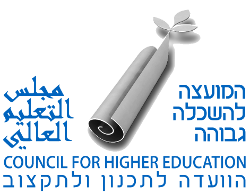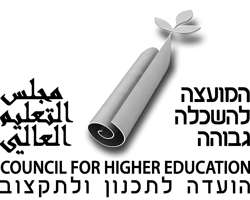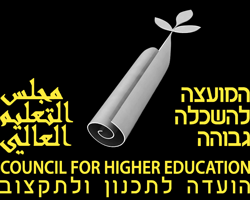Perach Scholarships
The Perach Tutorial Project was established in 1973. As part of the project, students serve as volunteer mentors school-age children in exchange for a scholarship. Students must generally provide four hours of tutoring a week in two two-hour meetings.
Perach operates in all of the institutions of higher education licensed or recognized by the CHE, including colleges not subsidized by the state.
In the 2017-8 school year, according to the decision of the Perach administration, 19,870 Perach scholarships were budgeted. Of these, the Planning and Budgeting Committee (PBC) granted 16,706 scholarships, and the rest were given by the the Ministry of Education (through the PBC), the Ministry of Economy and other sources. The total cost per mentor was NIS 6,500.
Following a government decision, from the 2016-7 academic year the bonus for tutors who served at least 10 days of active reserve duty the previous year was increased to NIS 2,600.
In 2017-8 the Perach administration explored new models of operation to deepen the impact of the mentoring. It decided to explore a model by which mentoring would include a training element of 20 hours a year (and 100 hours of mentoring), which would raise the students’ awareness of educational and social issues facing the community and country. Furthermore, the format of supervision for Perach mentors would be changed from individual to group supervision, in order to create a reflective and learning mentor community.
In the 2018-9 school year, a pilot of the new model will be run in one of the Perach centers with an eye to fully operating the model from 2019-20.
Applications for Perach can be submitted online. For further information
The Student Assistance Fund
For detailed information on the 2018-9 school year
The Student Assistance Fund is a subcommittee of the Planning and Budgeting Committee comprised of representative of the PBC, the Ministry of Education and the Ministry of Finance. It is headed by a PBC member.
The fund distributes grants and loans based on socioeconomic criteria. The assistance fund designs policy on student assistance, from determining criteria for eligibility, to determining the amount of the scholarships and how to divide the budget between them.
There are three levels of grants as follows: NIS 12,480, NIS 6,240 and NIS 4,000, according to the fund’s criteria.
By a government decision, the assistance fund’s budget grew in 2015-6 by NIS 41 million, so that 19,000 students received assistance from the fund, of which 4,000 students received NIS 12,480.
From 2016-7 the fund’s criteria were adjusted, and per the PBC policy, an increased subsidy for STEM students (Science, Technology, Engineering, Math) was added.
Furthermore, applications were moved to a digital format.
For more information, please contact the Teldor company:
Phone: 08-6776032, 1700-505-885
Fax: 077-2270127, 08-6776030
Email: milgot@taldor.co.il
The Irteka Scholarship Fund for the Arab community
Program website
The requirements for eligibility for an Irteka scholarship in 2018-9 for Arab, Druze and Circassian Undergraduates
General background
The Irteka scholarship is designed for Arab, Druze and Circassian undergraduates studying “priority” subjects.
The goal of the program is to increase the number of minority undergraduate students in “priority” subjects, and give an opportunity to people from low socioeconomic backgrounds with potential and motivation to enter academe.
*Priority subjects in the economy: Specific academic subjects needed by the Israeli labor market, which are in relatively low demand among Arab students.
The main idea
Increasing the Arab community’s participation in higher education will increase its socioeconomic status in Israeli society and contribute to the state as a whole.
In the course of developing the program, the need to offer economic aid to help students was noted for two main reasons. One, according to the statistical data, Arab students come from a lower average socioeconomic background than Jewish students. Two, the supply of scholarships and work offers available to Arab students is considerably lower than those offered to Jewish students (among other reasons because of priority for military veterans).
Therefore, the CHE decided to establish a unique scholarship fund for Arab undergraduate students.
Another goal of the fund is that in exchange for the scholarship students will be required to give back to the community and work as mentors and tutors for children and youth in the Arab community (and in other projects). Through ”modeling,” these youth will in turn aspire to also pursue academic studies.
The steering committee of the Irteka scholarship fund authorized Perach to execute the scholarship distribution to those eligible, subject to performing volunteer work.
The scholarship is NIS 10,000 for each of the first two years of a bachelor’s degree and NIS 8,000 for each of the next two years of the degree.
The terms of the scholarship
• The student is from the Arab, Druze or Circassian communities
• The student is registered at a recognized institute of higher education
• The student is registered for their first year of studies for a bachelor’s degree as a regular student
• The student’s schedule is at least 12 weekly hours
• Training and volunteering in the community for 40 hours (year 1)
• Volunteering 80 hours (years 2, 3 and 4)
Composition of final grade and rating of subjects
The calculation of eligibility for the scholarship will weight the candidate’s academic subjects and socioeconomic status by the following distribution:
60% for socioeconomic status and 40% for academic field.
Additional sources of information on scholarships
Following are a number of sources of information on different options for student scholarships and assistance:
The dean of students’ office and student union at the institution are sources of information about assistance funds and other possibilities of economic aid that can be sought during school. In addition, in certain cases these institutions can offer scholarships to those eligible from their own internal funds. More accurate information can be obtained from the institution’s dean of students’ office and student union.
NUIS scholarships: The National Union of Israeli Students (NUIS) grants scholarships on the sole basis of social engagement. These scholarships are not granted on a socioeconomic basis. For further information see NUIS website.
Scholarships, grants and loans for academic studies from the Ministry of Education – For further information please see Ministry of Education website
It is advisable to begin gathering information about the aforesaid resources before the beginning of the academic year. It is also advisable to note the various scholarship application deadlines. These might differ from one organization to another.


